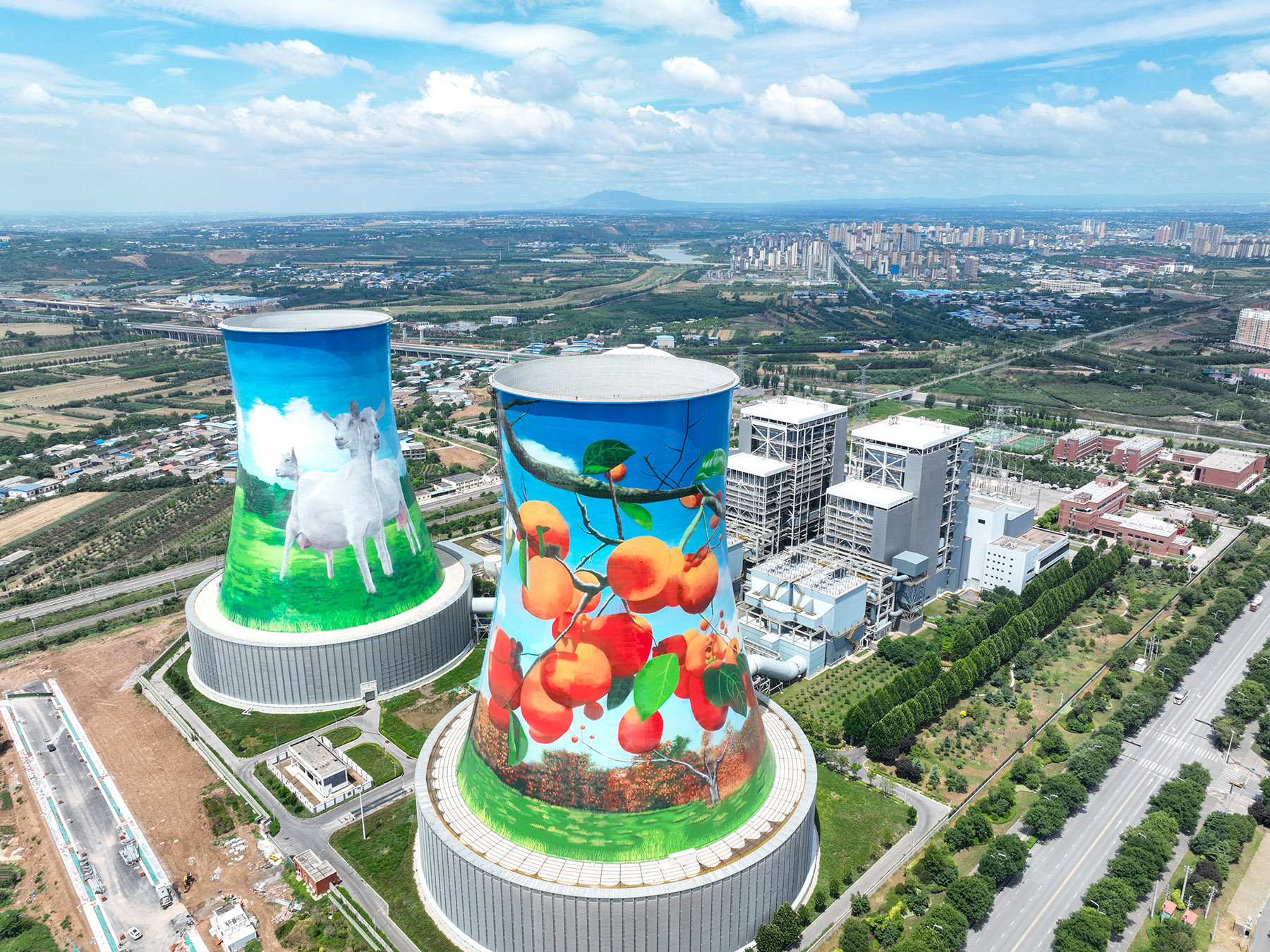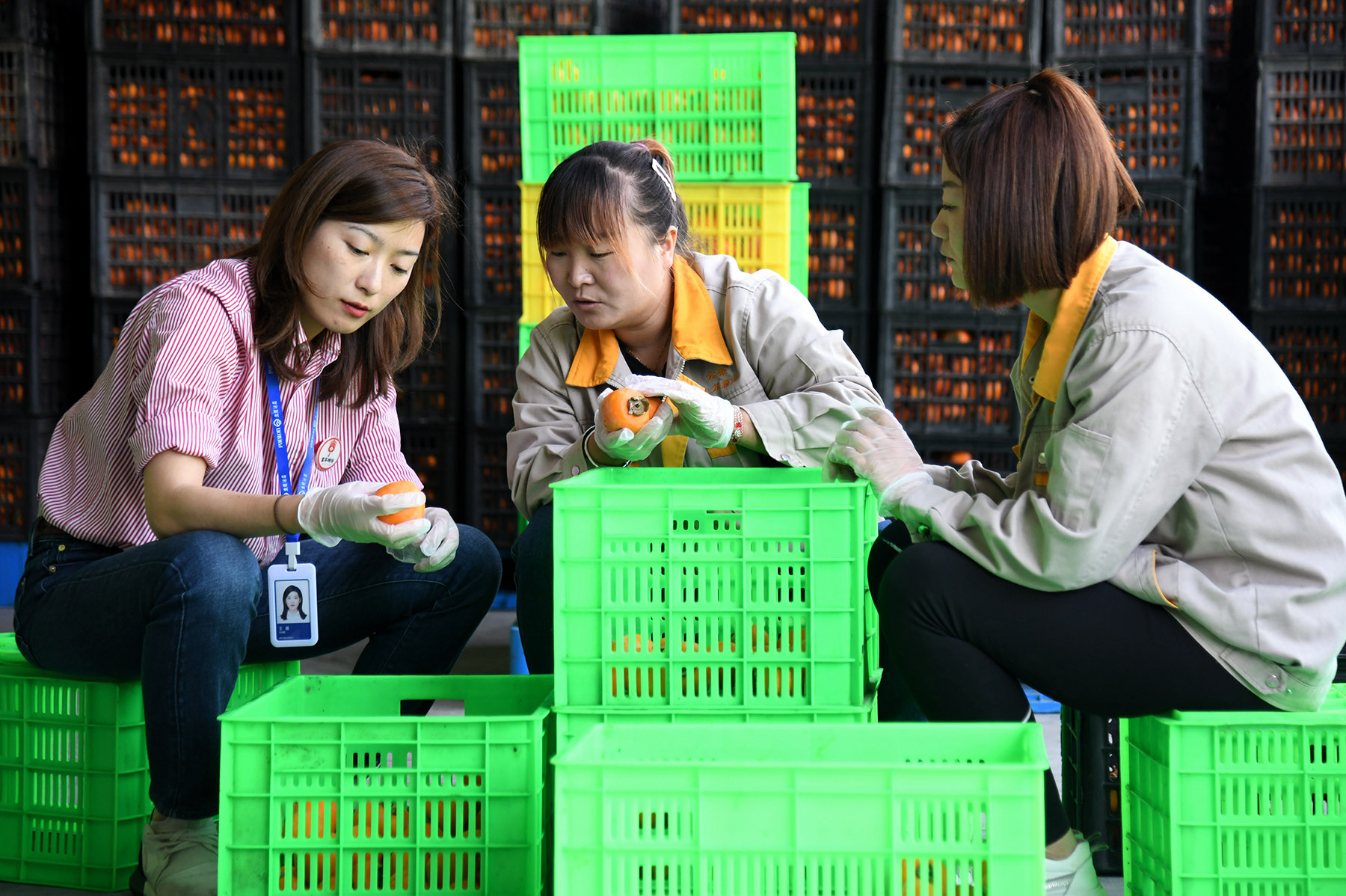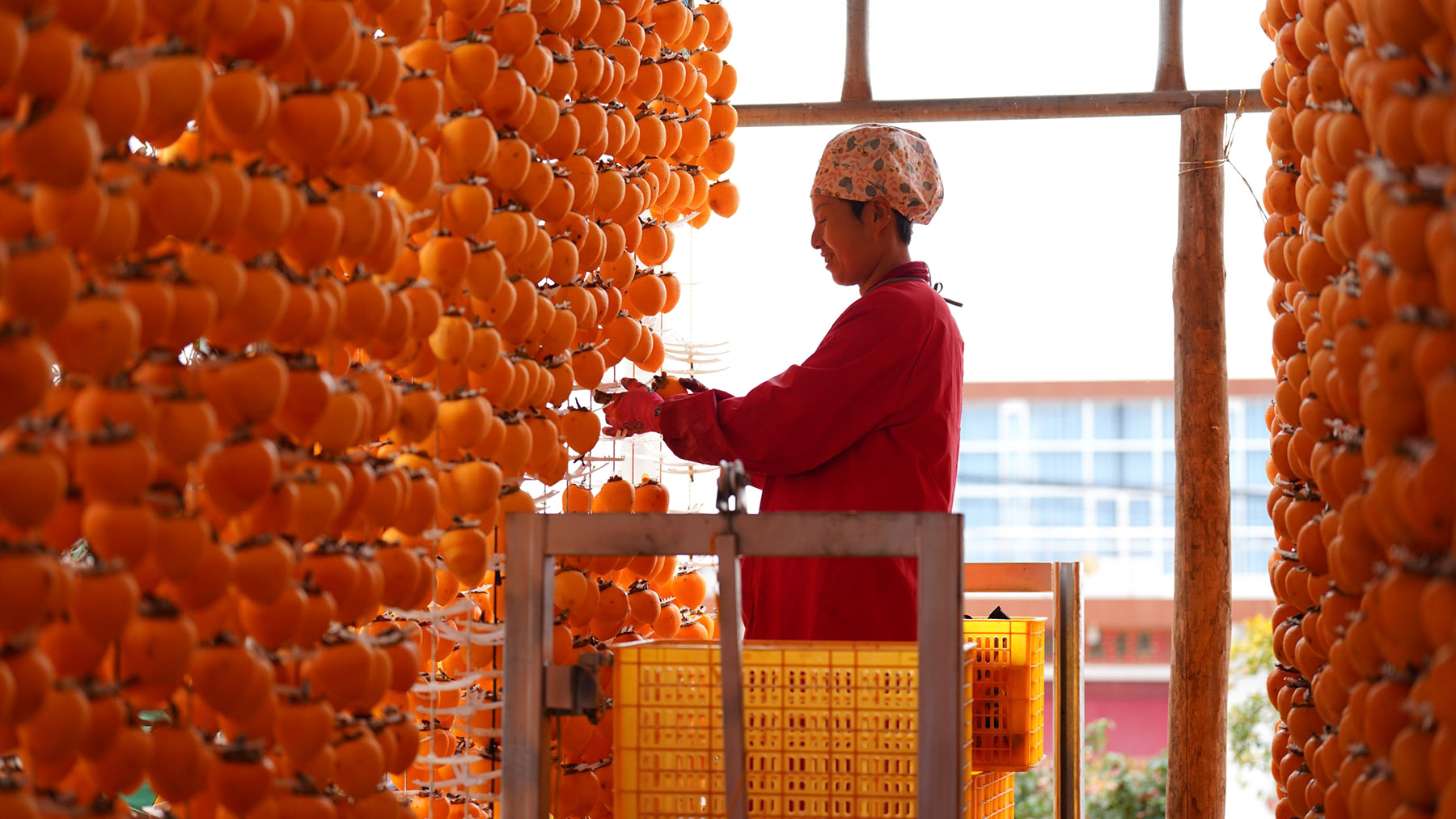Planting trees helps locals earn living, retain water in mountain village

Editor's note: As protection of the planet's flora, fauna and resources becomes increasingly important, China Daily is publishing a series of stories to illustrate the country's commitment to safeguarding the natural world.
Until recently in the mountainous village of Yangjia in Fuping county, Shaanxi province, when it rained the water couldn't be absorbed by the barren soil there, so small gullies would be carved out of the mountainside and dirt roads would erode.
This would compound several issues faced by the remote village — a lack of fertile, absorbent soil, a lack of water and poor road and agricultural infrastructure.
Few trees on the mountainside to help fix the soil and mitigate erosion meant that a profitable agricultural industry was lacking for the villagers of Yangjia, and that the water that did fall in the area was lost, meaning that the resource was scarce for those who needed it most.
However, change came to the village in 2012 when the local government launched a program combining the prevention of soil erosion and the development of agriculture around the growing of persimmons.
READ MORE: Beating back the desert
As a result, the mountains in Yangjia have become populated by profitable persimmon trees.
The major beneficiaries of the program have been the local people and the environment.
While making the barren soil more fertile, the persimmon trees have also helped retain water.
The transformation in Yangjia is an example of how development and conservation don't necessarily contradict each other, but can actually be complementary.
As stressed by President Xi Jinping on many occasions, lucid waters and lush mountains are invaluable assets, and the greening of the barren mountains in Yangjia has provided the momentum to environmentally and economically vitalize the rural community.
"In the past, when looking into the distance it was hard to see a single trace of greenery," recalled Yang Zhengchuan, a Yangjia village resident.
The barren land in the village and the severe water scarcity meant that his four-member family would seldom make more than 5,000 yuan ($690) a year from farming, which used to be their main source of income.

According to the Ministry of Water Resources, China's water resources per capita on average is about 2,200 cubic meters. In Fuping, it is just 196 cubic meters per capita.
Yang's family's economic situation was so dire in the 1990s that he had to borrow money to buy milk powder for his two children, the price of which stood at 8 yuan per canister at the time, the 55-year-old recalled.
Their life would become chaotic during heavy rains. Soil and water rushed down from the barren slopes, making the road impassable. To make matters worse, parts of the road connecting the remote village to the outside world were sometimes washed out, he recalled.
That might make them go without adequate daily supplies for days, as they usually had to buy such necessities from the nearest township of Zhuangli, which is more than 5 kilometers away.
Under the program introduced in 2012, gently sloping land was converted into terraced fields available for villagers to lease for persimmon cultivation, while the barren steeper slopes were afforested to mitigate soil erosion caused by rainwater.
In total, 90 hectares of trees were planted and 130 hectares of terraced fields were established in Yangjia and the two neighboring villages of Guzhang and Wangzhuang. Additionally, 18 km of new roads were built in the area to facilitate persimmon farming and forest management, according to the Fuping county government.
The program has increased the size of persimmon orchards in Yangjia to 367 hectares, it said.
Qi Lei, an official overseeing water and soil conservation for the Fuping government, highlighted a range of additional measures aimed at improving water retention in the county.
Semicircular cement enclosures have been installed around each tree to aid in retaining rainwater at the base of the trees. Additionally, small dams have been built in mountain gullies to impede the runoff of rainwater and thus have more of the valuable resource absorbed into the ground.
Thanks to these measures, 50 to 60 percent of the rainwater that falls in the area can be retained, effectively curbing local water and soil loss, he added.
Yang leased almost 2.7 hectares of terraced fields to plant persimmons. When the trees started to bear fruit five years later, they became a reliable source of income, bringing in about 180,000 yuan a year.

He said local persimmon production has more than doubled thanks to the water and soil loss mitigation program. This, too, has been aided by a drip irrigation system the local government introduced to help address irrigation difficulties in the arid area.
As the mountains have been transformed into a lusher landscape, locals no longer have to endure the challenges of muddy roads after the rain and swirling sand during windy weather, he added.
Before 2012, villagers found it challenging to sell the dried persimmons they produced locally. After giving some of their preserved fruit to friends and relatives, they took what was left to markets and fairs in Zhuangli to sell, Yang said.
Now, Yang sells all his dried persimmons to an e-commerce company in the village named New Farmers.
Qiao Binbin, head of the company, is believed to be the first young person from Yangjia village to return after leaving. In 2012, the 37-year-old resigned from his executive position at a State-owned company in Hangzhou, Zhejiang province, to pursue selling dried persimmons online — a venture he had been nurturing in his spare time since 2006.
"When I mentioned to the villagers in 2012 that I was selling dried persimmons online, none of them believed me," he recalled. Undeterred, Qiao maintained a steadfast belief in the substantial potential of the business because of his own experiences.
He managed to rake in 50,000 yuan in sales of the preserved fruit in just one month on the e-commerce platform Taobao, he said.
By 2014, he'd made 1 million yuan in online sales, so he decided to found New Farmers. The company has even sold as much as 4.5 million yuan in dried persimmons in a single day.
Last year, the company sold 1,500 metric tons of dried persimmons and over 6,000 tons of various other agricultural products. With an annual sales volume of 100 million yuan, the company now employs more than 300 seasonal workers throughout the year.
Approximately 7,100 tons of persimmons can be yielded annually in Yangjia, according to Qiao, and around 1,750 tons of dried persimmons are processed, contributing to an increase of about 5,000 yuan in the per capita income of the village of 545 households and almost 2,400 residents.
As the local government intensifies its efforts to integrate water and soil conservation with the development of an industry around persimmons, people in other parts of Fuping have also benefited.
ALSO READ: Severe drought, heat wave grip China's agricultural heartland
In the past decade, the county has constructed 30,000 hectares of terraced fields. While a total area of 8,600 hectares has been afforested especially for water retention, 3,000 hectares of economic trees such as persimmon and pepper trees have been planted.
As of last year, Fuping boasts 24,000 hectares of persimmon orchards, with the annual production of dried persimmons in the county reaching 70,000 tons. The overall annual output value of the persimmon industrial chain has surged to 6.5 billion yuan.
The booming industry now directly employs about 130,000 people, with 70,000 more engaged in the whole industrial chain.
With a significantly improved economic situation, Yang and his family have bid farewell to their old and dilapidated cave dwelling and moved into a new home with modern amenities.
Reflecting on the past, Yang recalled how leaving their hometown to work as migrant laborers was once thought of as the only means for young villagers to sustain themselves. Enticed by the thriving persimmon industry, however, many young villagers are now returning, making the community once predominantly inhabited by seniors and children bustle again.
"Previously, sightings of young individuals in the village were rare. Nowadays, encountering them is a common occurrence," he noted.


